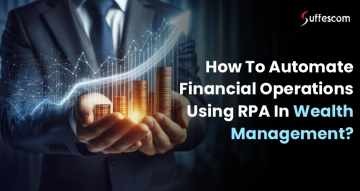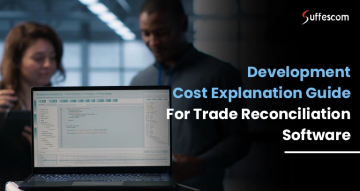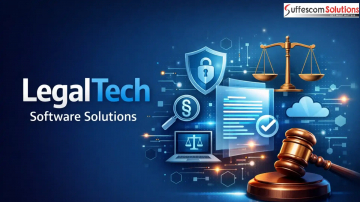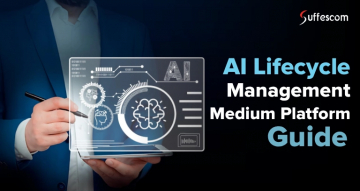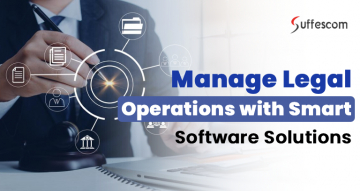Top RWA Tokenization Companies in 2026 That Are Reshaping Real Assets

Traditional investment in real-world assets has been surrounded by heavy paperwork, high barriers to entry, and inefficient processes for the settlement of transactions. But times are changing rapidly with the emergence of RWA tokenization. Real-world asset tokenization companies facilitate the conversion of the physical assets-such as real estate, gold, or bonds-into blockchain-based digital tokens, permitting fractional ownership, instant settlements, and global 24/7 trading.
In 2026, innovation, regulatory clarity, and DeFi integrations are further pushing the momentum toward RWA tokenization. The following blog looks into the top 10 RWA tokenization companies that are leading this revolution, illustrating how they fuse compliance, technology, and market reach to shape asset ownership globally.
What is Real-World Asset (RWA) Tokenization?
Real-world asset tokenization is the process where ownership rights in tangible or intangible assets like real estate, precious metals, equipment, or securities. These are converted into digital tokens on a blockchain. These tokens represent fractional ownership, reduce investment minimums, and facilitate seamless trade and transfer.
Key benefits of working with top RWA tokenization service providers include:
- Fractional ownership of high-value assets
- Increased liquidity via blockchain-based secondary markets
- Automated compliance via KYC/AML integration in smart contracts
- Faster, secure asset transfer and settlement
If you're looking to develop your own tokenized platform, understanding the key players in this space is crucial.
Why Are Leading RWA Tokenization Companies Vital in 2026?
This is the ecosystem where real-world asset tokenization platform companies can digitize assets by providing secure infrastructure, regulatory frameworks, and technical expertise. These firms manage everything from asset verification to smart contract deployment and compliance monitoring aligned with jurisdictions including the U.S. SEC, European MiCA regulations, and emerging fintech sandboxes worldwide.
Many tap into decentralized oracles such as Chainlink to feed on-chain data into blockchains automatically, permitting updated real-time valuations and asset transparency.
Through these innovations, real-world asset tokenization companies connect traditional finance with DeFi, opening new and unparalleled investor access and liquidity.
Criteria for Ranking the Top 10 RWA Tokenization Companies
This RWA tokenization companies list is curated based on:
- Volume and value of tokenized assets under management
- Regulatory compliance coverage and certifications
- Innovation in blockchain architecture, AI, and interoperability
- Geographic and industry reach
- Client success stories and ecosystem influence
The Top 10 Real-World Asset Tokenization Companies in 2026
Here are the top real-world asset tokenization platforms making an impact in 2026. Each offers unique features, tech stacks, and compliance models.
1. Suffescom Solutions
- Overview: Established in 2013 (USA), Suffescom Solutions Inc. specializes in custom RWA tokenization development, including real estate tokenization and gold tokenization.
- Key Offerings: Our end-to-end solutions encompass smart contract design, wallet integration, multi-currency support, and compliance modules. Various solutions have led Suffescom Solutions to be a leading RWA tokenization company.
- Why Suffescom stands out in 2026: With over a decade of blockchain expertise and industry-oriented security standards, Suffescom excels in fractionalizing high‐value assets. The company's expertise encompasses various facets of blockchain technology, including asset tokenization, decentralized finance (DeFi), and smart contract development.
2. Tokeny
- Overview: Founded in 2017, Tokeny offers an institutional-grade tokenization for loans, equities, and funds.
- Key Offerings: Tokeny offers real-world asset tokenization services for real estate, private equity, funds, and debt.
- Why Tokeny stands out in 2026: Having facilitated over $28 billion in tokenized assets and 3 billion transactions, Tokeny's modular platform is adopted by major financial institutions, strengthened by Apex Group's majority stake.
3. Bitbond
- Overview: Launched in 2013, Bitbond's Token Tool platform focuses on bond and receivables tokenization, serving banks and enterprises.
- Key Offerings: Supports token creation, multi-chain deployment (Ethereum, Avalanche, Polygon), integrated investor UIs, and automated payment settlement.
- Why Bitbond stands out in 2026: Bitbond combines German regulatory clarity with multi-chain issuance, making it a preferred partner for EU institutions, backed by $6.86 million funding and Europe's first BaFin‐sanctioned STO.
4. Securitize
- Overview: Founded in 2017, Securitize is a digital securities platform that has tokenized over $1 billion in assets for 1.2 million investors and 3,000+ clients.
- Key Offerings: Its DS Protocol automates token issuance, transfer agent functions, and secondary trading on a regulated ATS, while its Fund Services platform offers full tokenized fund administration.
- Why Securitize stands out in 2026: With $47 million led by BlackRock to expand RWA tokenization and over $1 billion on-chain assets, Securitize's integrated compliance and marketplace capabilities make it a market leader.
5. BlockchainX
- Overview: Established in 2018, BlockchainX provides full-stack blockchain development, specializing in real estate, commodities, and NFT fractionalization.
- Key Offerings: Develops custom RWA platforms using Angular, Ganache, Truffle, and IPFS; offers compliance modules adaptable to multiple security standards.
- Why BlockchainX stands out in 2026: Named a top 10 asset tokenization company in 2026 by CapA Learning, BlockchainX leverages smart contract audits and fractionalization modules to serve fast-evolving markets.
6. Chainlink Labs
- Overview: Originating in 2014, Chainlink Labs powers decentralized oracle networks that supply off‐chain data for smart contracts.
- Key Offerings: Chainlink Price Feeds, VRF, Proof of Reserves, and Cross-Chain Interoperability Protocol (CCIP) deliver accurate valuations and compliance data to RWA tokenization platforms.
- Why Chainlink Labs stands out in 2026: Supporting over $20 trillion in on-chain transactions, Chainlink's oracles are essential for data integrity in tokenized funds and stablecoins.
7. RWA Labs
- Overview: RWA Labs specializes in digitizing and tokenizing real estate, equipment, and shares, integrating traditional markets into DeFi for transparent fractional ownership.
- Key Offerings: End-to-end blockchain integration, property digitization, and token sale support aimed at enhancing liquidity for institutional and retail investors.
- Why RWA Labs stands out in 2026: RWA Labs’ focus on real estate and equipment tokenization, backed by key data partners, positions them as thought leaders for next-generation liquidity platforms.
8. Zeeve
- Overview: Founded in 2020, Zeeve offers 'Rollups-as-a-Service' (RaaS), a no-code blockchain infrastructure platform tailored for RWA tokenization.
- Key Offerings: Custom rollup deployment, Infrastructure compliant with security standards, and decentralized storage and identity APIs.
- Why Zeeve stands out in 2026: Zeeve's Rollup-centric architecture enables enterprises to launch permissioned chains for RWA tokenization, balancing privacy, interoperability, and scalability, critical for large-scale deployments.
9. Polymath
- Overview: Founded in 2017, Polymath provides a security token issuance platform that automates compliance across jurisdictions and asset classes.
- Key Offerings: White-label SaaS for ERC-1400 token issuance, integrated KYC/AML, and Polymesh, a Layer 1 network built for regulated digital assets.
- Why Polymath stands out in 2026: Polymath's continuous innovation keeps it at the forefront of institutional security tokenization.
10. Ondo Finance
- Overview: Founded in 2021, Ondo Finance is a DeFi platform specializing in tokenizing U.S. Treasuries, corporate bonds, and yield-generating assets for retail and institutional use.
- Key Offerings: Ondo Finance creates tokenized products compatible with both institutional standards and DeFi applications.
- Why Ondo Finance stands out in 2026: Ondo's structured, principal-protected tokenized products are a first-of-its-kind. Such solutions increase its credibility as a pioneer at the intersection of traditional finance and DeFi.
Comparative Overview of the Best RWA Tokenization Companies
| Company | Founded | Compliance Regions | Specialty Areas | Highlights |
| Suffescom | 2013 | US, Global | Custom RWA, DeFi | Fractionalization, Multi-currency |
| Tokeny | 2017 | Global | Loans, Funds, Equities | Modular, Institutional-grade |
| Bitbond | 2013 | Europe (BaFin license) | Bonds, Multi-chain | STO expertise, Automation |
| Securitize | 2017 | US, Global | Digital securities, ATS trading | Automated Compliance |
| BlockchainX | 2018 | Global | Real estate, NFT fractionalization | Smart contract audits |
| Chainlink Labs | 2014 | Global | Oracle networks, interoperability | Data feeds, CCIP |
| RWA Labs | 2019 | US, EU | Real estate, Equipment | Liquidity solutions |
| Zeeve | 2020 | Enterprise Focus | Rollup infrastructure | No-code deployment |
| Polymath | 2017 | Global | Security token issuance | ERC-1400, Regulated blockchain |
| Ondo Finance | 2021 | US, Global | DeFi tokenized bonds | Principal-protected products |
Key Industry Trends Shaping RWA Tokenization in 2026
The RWA market is at a new maturity phase wherein leading real-world asset tokenization companies are fast embracing modern technologies that improve speed, transparency, and global liquidity. Here's a look in closer detail at the trends redefining the space:
1. Cross-Chain Interoperability
RWA platforms are being built to accommodate seamless transfers between Layer 1 and Layer 2, ensuring that assets flow freely across chains; these enable deeper liquidity pools and the facilitation of smoother settlement, which top RWA tokenization service providers are focusing on for 2026.
2. Programmable Securities
Advanced token standards, like ERC-3643, are making governance smarter and more dynamic. Programmable securities supporting rule-based compliance, automated restrictions, and flexible asset control make them the core component for modern real-world asset tokenization companies.
3. AI-Powered Compliance
AI-driven systems handle real-time audits, fraud detection, valuation checks, and risk scoring today. This reduces operational costs while keeping assets compliant through the entire life cycle, which has become an emerging must-have for enterprise-grade tokenization platforms.
4. Zero-Knowledge Proofs (ZKPs)
ZK-based privacy retains the confidentiality of business data while continuing to meet regulatory requirements. It helps the platform to maintain the transparency where it's needed. It keeps sensitive information locked tight as it is critical balance for RWA adoption.
5. Tokenization of Sustainable Assets
Green finance is growing digitally. In particular, carbon credits, ESG assets, and renewable energy-backed tokens see growing demand. Tokenization allows easier access to these asset classes for investors while enhancing traceability and accountability.
Token Standards Used in RWA Tokenization
As RWA tokenization grows across real estate, commodities, and funds, leading RWA tokenization companies rely on trusted token standards to ensure secure, compliant, and seamless asset issuance.
ERC-3643 (formerly T-REX)
Designed specifically for regulated assets, ERC-3643 supports identity-based permissions, automated compliance, and controlled transfers—making it ideal for securities and institutional-grade tokenization.
ERC-1400
A hybrid standard combining fungible and non-fungible capabilities. It’s frequently used for security tokens since it enables partitioned ownership, compliance rules, and transparent audits.
ERC-1155
A multi-token standard that allows a single smart contract to manage both fungible and non-fungible assets. It’s well-suited for fractionalized assets, collectibles, and diversified token portfolios.
SPL Tokens (Solana)
Used on the Solana blockchain, SPL tokens support high throughput and low transaction fees. It is making them popular for large-scale RWA tokenization, especially in real estate and commodities.
Polymesh Token Standards
Built for regulated markets, Polymesh offers compliance-first token standards with permissioned transfers, identity layers, and governance suited for financial institutions.
Challenges in RWA Tokenization and How Top Companies Solve Them?
Even as real-world asset tokenization is rapidly expanding, there are still some practical issues hindering progress in the sector. Nevertheless, the top RWA tokenization companies are developing active solutions that make the entire process much safer, fully compliant, and easier to scale. The following are some of the most common challenges and how top RWA tokenization service providers usually address them.
1. Regulatory Fragmentation
This is the biggest among roadblocks that lack of uniform regulations across countries. Every jurisdiction has its own set of guidelines, hence making cross-border launches complex. To overcome this, top providers build frameworks aligned with SEC, MiCA, MAS, and other global standards to ensure smoother approvals and less risk of compliance.
2. Liquidity Constraints
Tokenized assets often fall short of achieving equivalent liquidity compared to their traditional security counterparts. Consequently, these vendors have begun integrating secondary markets, institutional AMMs, and interoperability layers for moving assets between chains in hopes of increasing trading and investor participation.
3. Credible Pricing Models
Since RWAs such as real estate, commodities, or private credit change in value constantly, it can be hard to get proper pricing on-chain. That's why top companies use decentralized oracles, real-time data feeds, and AI valuation engines to provide transparent and consistent pricing.
4. Secure Custody
Handling off-chain documents, proofs of ownership, and private keys introduces security risks. Major companies address this with multi signature wallets, institutional custody partners, and regulated trust structures that keep assets and digital tokens safe.
5. Investor Protection
There is a need for safeguards for investors against fraud, mispricing, and operational errors. Leading tokenization platforms handle this by embedding KYC/AML checks, automated compliance layers, and audit-ready reporting. It ensure that each transaction remains transparent and investor-friendly.
How to Choose the Best RWA Tokenization Service Provider?
The selection of the appropriate real world asset tokenization companies is essential to ensure smooth asset digitization, regulatory compliance, and investor confidence. Here's what to consider when making your choice:
Regulatory Coverage
Ensure that the provider can operate in your target jurisdictions and aligns with local compliance requirements on KYC/AML, securities regulations, and emerging frameworks like MiCA.
Industry Experience
These solution providers must be experienced in tokenizing asset types relevant to your business, for example, real estate, commodities, bonds, and/or private equity.
Technological Innovation
Assess their platform architecture for advanced security, smart contract integration, multi-chain support, and scalable infrastructure to handle higher transaction volumes.
Customization & Integration
A leading provider should offer flexibility in customizing the platform's features, branding, and workflows as per your business needs while supporting seamless integrations of existing CRMs, payment gateways, and custody solutions.
Support & Maintenance
Continuous post-launch support, security updates, and compliance monitoring are crucial for its smooth operation and adaptation to changes in regulations.
Performance & Reliability
Explore the uptime guarantee, the speed of the platform, and system redundancies to ensure investor and issuer services are uninterrupted.
Market Reputation & Case Studies
A review of the client portfolio, success stories, and references will determine the credibility, delivery excellence, and innovation in the RWA space.
Future-Readiness
Look for providers that adopt emerging technologies such as AI-powered compliance, automated asset valuations, and cross-chain interoperability to future-proof your tokenization platform.
The Future of RWA Tokenization Platforms and Companies
Beyond 2026, tokenization is set to reshape capital markets by bridging the gap between traditional finance (TradFi) and decentralized finance (DeFi). This integration will create a unified financial ecosystem where ownership, value transfer, and compliance are seamlessly digitized.
Several influential trends will drive this evolution forward:
- Cross-chain interoperability will enable tokens to move seamlessly across Layer 1, Layer 2, and multiple blockchain networks, thereby enhancing liquidity and reducing transaction friction.
- Evolving regulatory frameworks, such as the EU’s MiCA regulations, the U.S. SEC’s digital asset guidelines, and fintech sandboxes in Asia, will provide clearer legal pathways and increase institutional confidence in tokenized assets.
- Standardized token models like ERC-3643 and ERC-1400 will foster compliance, improve interoperability, and streamline investor onboarding across jurisdictions.
- AI and real-time data analytics will play a central role in on-chain governance, powering adaptive compliance systems, automated asset audits, and accurate valuations.
- Oracles and zero-knowledge proofs (ZKPs) will ensure data accuracy while preserving user privacy, enabling compliant and secure tokenization of regulated assets.
Collectively, the top 10 RWA tokenization companies in the USA will drive the democratization of alternative assets, allowing global investors to access, trade, and manage tokenized real-world assets seamlessly.
Whether you're an institutional investor or an enterprise exploring blockchain solutions, working with a reputable Asset Tokenization Development Company will be essential to staying competitive in this next phase of financial transformation.
Conclusion
Real-world asset tokenization represents a paradigm shift in how value, ownership, and liquidity intersect.
The top 10 asset tokenization companies listed above, ranging from custom developers (Suffescom, BlockchainX) and modular platforms (Tokeny, Securitize, Polymath) to infrastructure providers (Chainlink, Zeeve) and DeFi innovators (Ondo), demonstrate the diverse approaches and specialized capabilities shaping the RWA tokenization landscape in 2026.
Whether you are a traditional bank, asset manager, or fintech startup, aligning with these RWA tokenization leaders will be pivotal to navigating regulatory complexities, leveraging technological advancements, and unlocking new liquidity pools.
As tokenization matures, it will transform illiquid, high-value assets into dynamic, accessible digital tokens. This will result in the development of a borderless, transparent, and efficient financial ecosystem.
Frequently Asked Questions About RWA Tokenization
1. What is real-world asset tokenization?
It's the process of converting ownership rights of physical or financial assets, like real estate or gold, into blockchain-based digital tokens that can be traded, tracked, and managed digitally.
2. What are the benefits of real-world asset tokenization?
Tokenization improves liquidity by enabling fractional ownership, reduces transaction costs via automation, and expands investor access. It leverages blockchain's transparency and smart contracts for real-time settlement and streamlined compliance.
3. Which industries are using RWA tokenization in 2026?
Real estate, precious metals, corporate bonds, art, and even equipment leasing. Basically, any high-value asset that was once hard to divide or sell quickly is being tokenized
4. How does AI improve RWA tokenization?
AI helps with real-time valuations, fraud detection, and automated compliance. It’s also used for risk modeling, investor behavior analysis, and optimizing how platforms onboard new assets.
5. Can tokenized assets be traded around the clock?
Yes. That’s one of the biggest advantages. Once an asset is tokenized, it can be listed on secondary markets or decentralized exchanges letting investors buy and sell 24/7.
6. Is tokenization safe and compliant?
If the platform is built right, yes. The best providers use smart contracts, regulated custodians, KYC/AML systems, and undergo audits. Compliance varies by region but the good ones bake it into the infrastructure.
7. How does real estate tokenization work?
Real estate tokenization divides property into digital shares (tokens), allowing for fractional ownership. These tokens can then be bought, sold, or traded on digital marketplaces with lower barriers to entry.
8. Does your company offer a white label tokenization platform solution?
Many leading RWA tokenization companies provide white label tokenization platforms, allowing businesses to deploy branded solutions quickly.
